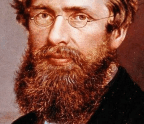FROM “LASTING DISGRACE” TO ALL-CONQUERING HEROES

On 6 August 1945, a US plane dropped an atomic bomb on the Japanese city of Hiroshima; three days later, a second bomb was released over Nagasaki. With Soviet tanks rolling across the border of Japanese-controlled Manchuria (in northern China), it was clear to Japan’s emperor, Hirohito, that his country now faced the prospect of total annihilation. Japan surrendered on 15 August; the Second World War, the most destructive conflict in human history, was over.
For the British and Commonwealth troops strung out across the Asian subcontinent, the sudden end of hostilities evoked a mix of complex emotions. With Burma having been reconquered in May, some were preparing for new campaigns to retake Britain’s lost colonies to the south and east. Some were involved in reconstruction and repair operations, while others awaited leave, or even repatriation.
The west African troops in Allied Land Forces South East Asia (whose main subordinate formation was the famous 14th Army) greeted the news with joy. According to the quarterly morale reports compiled in theatre, they were so enthused that spirits continued to be “very high” well into September. And Indian troops, who had been at the forefront of the final great campaign in Burma against the Japanese, responded to the news “enthusiastically”. But positive sentiments about the prospects of a return to civilian life soon turned to anxiety, as soldiers reflected on the possibility of unemployment.
For British soldiers, who by the fall of Rangoon (the Burmese capital) made up only 13 per cent of the 14th Army, the announcement was met “first with reserve and then with great satisfaction”. This was a more positive response than
You’re reading a preview, subscribe to read more.
Start your free 30 days



